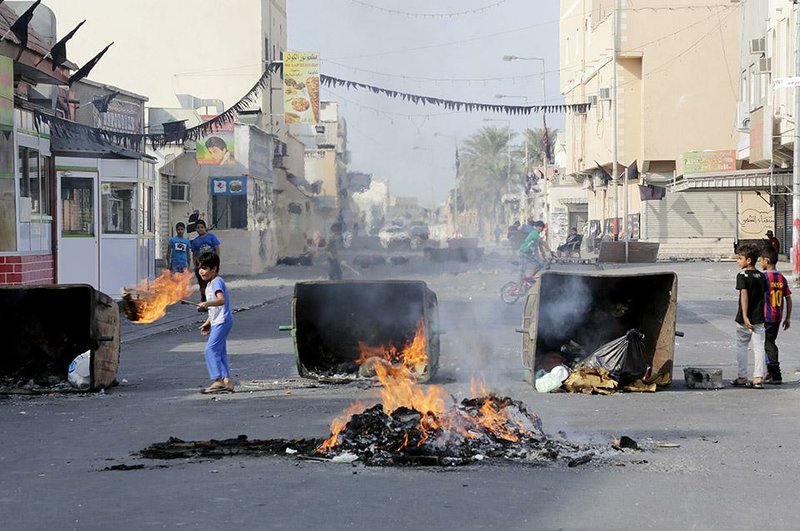MANAMA, Bahrain -- Voters in Bahrain cast ballots Saturday in the island kingdom's first full parliamentary election since Arab Spring-inspired protests nearly four years ago, but a boycott by the country's opposition overshadowed the vote and highlighted the sectarian-charged divisions gripping this strategic U.S. ally.
The country's most organized Shiite group, al-Wefaq, and other opposition organizations urged supporters to stay away from the polls. They accuse the government of failing to enact political changes and address other grievances that were at the heart of the February 2011 uprising that pitted an opposition movement dominated by the country's Shiite majority against supporters of the Sunni monarchy.
The elections are being closely watched not only by Bahrain's Western allies but also by Persian Gulf Arab neighbors such as Saudi Arabia and the United Arab Emirates that are led by Sunni hereditary rulers.
Bahraini authorities backed by security forces from neighboring Persian Gulf states crushed the 2011 uprising. But street protests, petrol-bomb attacks and other low-level unrest continue to roil the country, which hosts the U.S. Navy's 5th Fleet and is part of the U.S.-led coalition striking the Islamic State group.
Several opposition activists remain behind bars after convictions related to the 2011 unrest, and a number of prominent human-rights advocates are awaiting verdicts on charges they say are politically motivated.
A total of 419 candidateswere running for municipal and parliamentary seats Saturday. Any candidates who do not secure more than 50 percent of the vote will head to a runoff a week later.
The elections will determine the makeup of the 40-seat lower house of parliament, which has limited direct powers but carries important symbolism as part of political changes begun more than a decade ago.
Members of the upper house are appointed by King Hamad bin Isa Al Khalifa, whose family controls most senior government posts. The king's uncle, Khalifa bin Salman Al Khalifa, has served as the unelected prime minister for more than four decades.
Many voters in areas dominated by Shiites, who have long complained of discrimination and political persecution, said they were heeding calls to boycott.
"Everyone here is either in jail, killed, tortured or dismissed from their job," said Zahra Mohammed, a housewife from the Shiite-heavy community of Sanabis, west of the capital, Manama. "How I can vote while the government is still doing what I just mentioned? ... They did not offer anything to make things better."
A polling center in Riffa, a primarily Sunni community south of the capital that is home to many supporters of the ruling family, was visibly busier during a visit by Associated Press journalists. Badriya Malallah, a retired civil servant, said she considered voting to be a national duty.
"We have to vote to protect Bahrain from foreign interference," she said.
Several candidates have faced intimidation, including some whose cars and campaign facilities were torched before the vote.
Maj. Gen. Tariq al-Hassan, the public security chief, said authorities boosted security across the country to safeguard the elections. He said police "took appropriate measures" to address complaints of voter intimidation and arrested seven people as police dealt with what were described as "illegal gatherings."
Activists on Friday staged a mock referendum asking residents of Shiite areas if they wanted a new political system under United Nations supervision, and witnesses said police used tear gas to disperse protesters in some Shiite villages ahead of the vote.
Al-Wefaq and other opposition groups formally announced their boycott last month, saying the government has not engaged in genuine reconciliation efforts.
The group withdrew its 18 members from parliament following the 2011 crackdown on anti-government protests. By-elections were called to fill those seats, which increased the share of pro-government supporters in parliament.
Government spokesman Sameera Rajab said the opposition boycott "will not affect the elections."
Results from the first round of voting are expected today.
A Section on 11/23/2014
